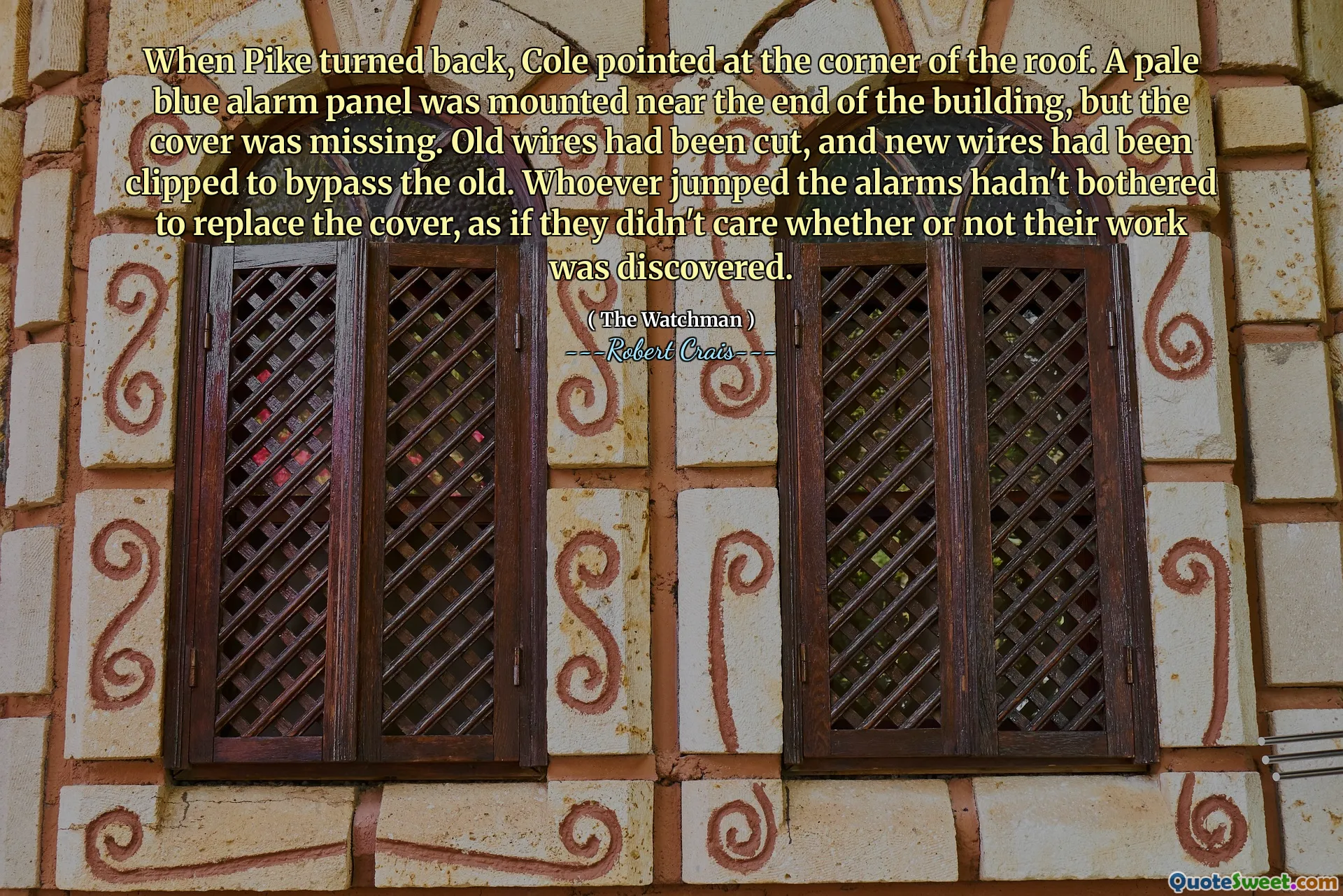
When Pike turned back, Cole pointed at the corner of the roof. A pale blue alarm panel was mounted near the end of the building, but the cover was missing. Old wires had been cut, and new wires had been clipped to bypass the old. Whoever jumped the alarms hadn't bothered to replace the cover, as if they didn't care whether or not their work was discovered.
This passage captures a moment loaded with tension and tells a story of imperfection and urgency. The details about the alarm panel speak not only to a technical bypass but also to the psychology behind a covert operation. The missing cover and clipped wires symbolize a breach — a vulnerability in the otherwise secure facade. It reveals that the intruders operate with a certain recklessness or confidence that discovery is either unlikely or inconsequential to them. This nuance brings out themes of carelessness or defiance that often accompany acts of desperation or calculated risks.
Moreover, the scene sets a noir-like, gritty tone that embeds the reader deep into a suspenseful environment. It forces us to ponder on who these characters are — their motivations, intelligence, and limitations. How much risk are they willing to take, and what consequences are they prepared to face? The passage subtly emphasizes human imperfection even in acts of strategizing, reminding readers that even the most elaborate plans can expose flaws. In the broader context of Robert Crais's "The Watchman," this likely contributes to the layered narrative style, where tension builds not just through action but through the observable details that imply larger, unstated stakes. Such vivid imagery combined with psychological depth enriches the novel’s atmospheric storytelling.






